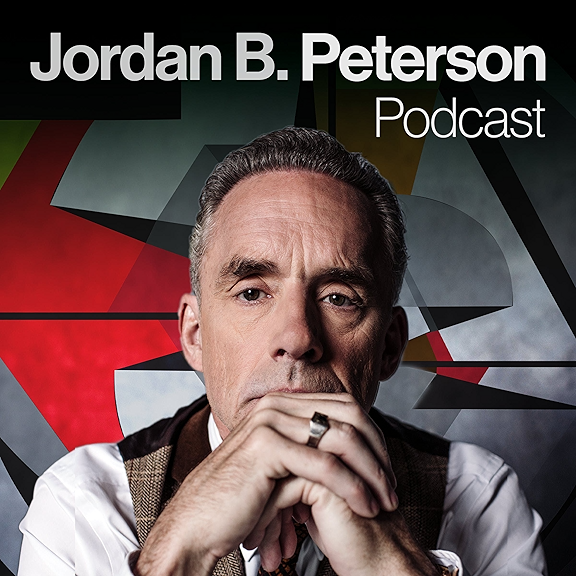
In today's hectic world, it's important to exercise self-care. Keeping yourself rested, relaxed and happy can help you tackle life's problems and reach your goals. Learn the many methods for exercising self-care and find those that suit you.
http://www.claritycoachingservices.com
TRANSCRIPT: This segment is on self-care, a very important segment. We all need to learn how to care for ourselves, so we're going to discuss ways to relax and reduce stress and anxiety. Relaxation and exercise can help our brain think more logically and rationally, and of course when we are rational, we can analyze our thoughts more clearly -- very important!
Ways to relax: We have deep breathing, meditation, exercise, focus, mindfulness, hobbies, music, muscle relaxation, laugh, friends, write it down, or EFT -- the tapping solution. Let's go through each of these.
Deep breathing -- breathe from deep down in your lungs. So let's try this -- we're going to breathe in through your nose for the count of six, hold your breath for the count of four, and breathe out through your mouth for the count of six. Now, if that's too long for you, you can shorten these, but let's try it. We're going to breathe in: one, two, three, four, five, six. Hold your breath: one, two, three, four. Breathe out through the mouth: one, two, three, four, five, six. Okay, do that again. (I'm not gonna do it again; you have to rewind it if you want to.)
Okay, meditation -- Sit down or lie down in a calm, quiet place. Close your eyes if you choose to. Notice your breathing, notice your body, and try to empty your mind and be in the present. If your mind wanders, that's okay, just try to come back to the present. When your time is up or you feel ready, open your eyes and you're done. You can also find a lot of apps or YouTube videos for meditation and those are really good. I would recommend doing that and seeing what you like.
Exercise -- we've got yoga, walking, running, swimming, hiking, or biking. These are all great ways to relieve stress and feel better fast.
All right, focus -- focus on your senses. This can be relaxing. You breathe deep and then you notice one thing you can taste, two things you can smell, three things you can hear, four things you can touch, and five things you can see. For example, I'm going to try to focus on my senses right now and be mindful, and I’m going to think of one thing I can taste. Um, I can't really think of anything, honestly. Two things you can smell: Hmm, I can smell…I think I can smell the enchiladas my husband made yesterday. How sad! What's another thing? I can't think of anything else. I'm not doing this very well! That's okay, it's really okay -- you don't have to; it's not a test. It's just about relaxing and focusing on your senses. All right, three things I can hear: I can hear a truck in the distance, I can hear a bird, I can hear the computer -- the computer fan. Four things I can touch: I can touch my computer, my microphone, my notepad, and my water bottle. Five things I can see: I can see the painting on the wall of my mom's flower garden, I can see the printer, the computer, the chair, and the floor. I think that's five. Okay, so the purpose of this exercise is that when you're focusing on doing all these things, your mind can't start worrying about anything else. I just realized I was completely focused on that task and not thinking about anything else, or whether I was doing a good job here. So yay, that worked! Alright, so that's focusing on your senses. Do that if you're at a party and you are feeling anxious.
Mindfulness -- mindfulness is a way of being that incorporates meditation, focusing on the present, letting things be, deep breathing, being grateful, noticing your surroundings, and spending time with people who make you happy. So it kind of incorporates a lot of different things.
Hobbies -- hobbies can help you relax. Doing something creative each day can increase your sense of well-being. That's from an article, which I have listed down below, in the Journal of Positive Psychology. What do you love to do? Try to remember what it is you used to love to do, or maybe you still do what do you love to do. In any case, do it!
Music -- listen to your favorite music. Google relaxing music on YouTube. You'd be surprised what kind of music they have there, -- really cool. You could even combine the music with dancing to double up on the anti-stress properties, because you've got your exercise in there, your music, you know.
Muscle relaxation -- Relax and get comfortable. Breathe deeply. Starting with your feet, tighten your muscles on your feet. Hold for 10 seconds and then relax. Then do the same for the rest of your body, moving upwards one area at a time, going from the feet to the legs, your abdomen, your hands, your arms, your shoulders, and then your jaw and neck -- always the worst part for me. Try that muscle relaxation exercise.
Laughing -- watch a funny movie, read a comic book, attend a comedy night. Sometimes laughter is the best medicine. And go for the belly laugh for maximum effects! That's just my opinion, and I have no research to back it up. So anyway, belly laughs, always good.
Friends -- friendships are good for your mental and physical health. They can act as a psychological vaccine against stress -- very important in these times. We want those psychological vaccines. So maintain your friendships in as healthy a way as you can, and that should help you out. That comes from another article by The University Of North Dakota. They do say that friendships can act against stress.
Write it down -- are you worrying about things you need to get done? Are you worrying about remembering to do them? Write it down; make a list. This is especially helpful if you're worrying about things in the middle of the night, and it's causing insomnia. Just write it down and then you'll know you can put it aside until you have time to tackle that issue. You don't have to be worrying that, ‘Oh, I need to remember that thought.’ Just write it down. Are you stressed about a certain situation or relationship in your life? Again, write it down. Putting your feelings to paper may help provide clarity, or at least an outlet for your feelings. If you're worried about people reading it at some point, then tear it up, put it in a safe, or burn it. There are all sorts of things you could do.
This is the last one – EFT, which is called the Emotional Freedom Technique or Tapping. EFT was developed by Gary Craig in the 1990s, and he based that on his study of work done by Roger Callahan in the Thought Field Therapy arena, so there you go. This is what you do: you identify your fear or issue, and you rate your current level of fear or anxiety on a scale of 0-10. You want to decide if this worked for you or not when you're done.
Then you create your phrase of what is causing you anxiety or whatever. Your phrase is going to be something like, ‘Even though I am feeling anxious, I deeply and completely accept myself.’ Or you can substitute ‘depressed’ or ‘scared’ or whatever it is, and then that's going to be your initial phrase. Then you're going to create your reminder phrase -- that's a shortened version that includes what your fear or issue is. That might be ‘This anxiety’ or ‘This depression’ or ‘This fear’.
So now you're going to do the tapping thing. and you are going to start by using one hand to tap the side of your other hand, kind of like in a karate chop, while you repeat your phrase three times, that long phrase: ‘Even though I am feeling anxious, I deeply and completely accept myself.’ And then you repeat it two more times.
Now you go to the shortened phrase, and you tap on all these other areas of your body seven times while you repeat your reminder phrase like, ‘This anxiety, this anxiety.’ You start tapping on the inside of your eyebrow, and you say ‘This anxiety, this anxiety, this anxiety…’ You're tapping seven times. Then you tap next to your outer eye, ‘This anxiety, this anxiety, this anxiety.’ Then under the eyes, on that bone there: ‘This anxiety, this anxiety, this anxiety,’ while you're tapping. I'm tapping -- you can't see me tap, but… Oh, it's hard because I have my glasses on! And then under the nose on the philtrum area, if you happen to know what a philtrum is. It's that little indentation under your nose. ‘This anxiety, this anxiety, this anxiety.’ And then that little crease between the lips and the chin, ‘This anxiety, this anxiety, this anxiety.’ And then an inch below and out from the collarbones, ‘This anxiety, this anxiety, this anxiety.’ Then under the armpit, ‘This anxiety, this anxiety...’ The last one is on the top of the head -- it's kind of like the monkey, ‘This anxiety, this anxiety, this anxiety.’ All right, so then you take a deep breath and let it go. And when you're all done, you rate your current level of fear or anxiety to see if it has improved. I have to say, I have done this when I’m feeling anxious, and it worked! It reduced my anxiety quite a bit.
I hope these techniques will help you to feel more calm.
For more information, you can contact me at my website claritycoachingservices.com.




















